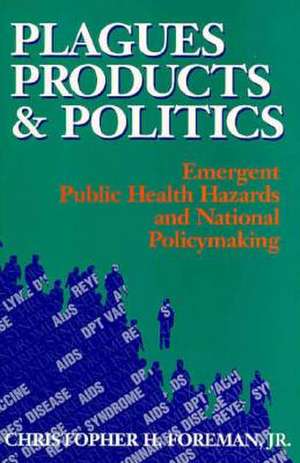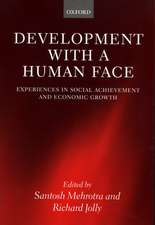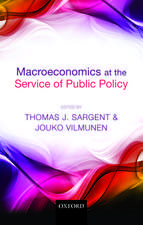Plagues, Products, and Politics: Emergent Public Health Hazards and National Policymaking
Autor Christopher H. Foremanen Limba Engleză Paperback – aug 1994
Despite enduring limitations and flaws, public health in the United States today enjoys impressive successes compared with both earlier eras and less developed countries. Yet a recurrent, often harrowing feature of the public health landscape has been the sudden emergence of a potentially widespread threat that promises serious harm, and perhaps death, to its victims. These threats include both infectious diseases and product-related hazards. This book examines the U.S. government's handling of such threats to public health and assesses its capacity to respond effectively.
The complex and vitally important political and institutional side of such problems has received less frequent attention than it deserves. Focusing on activity devoted to the discovery, investigation, containment, and prevention of disease in the population at large, Christopher Foreman shows how uncertainty and politics complicate crucial stages of policy response, and why that response is easily misinterpreted.
Although AIDS is a prominent case study, this is not a book about AIDS alone. Other public health hazards discussed are Lyme disease, swine flu, Legionnaires' disease, Reye's syndrome, silicone breast implants, cyanide-laced Tylenol, toxic shock syndrome, and vaccine injury. Taken together, such hazards are distinctive for their relatively sudden emergence on the public health agenda and their propensity to generate visible victims quickly.
Foreman explores the important policy tasks associated with each of these threats and discusses the national government's multiple roles as investigator, educator, regulator, researcher, and funder for these health problems. He calls for a stronger overall regime of public health and a more energetic program of surveillance to identify problems quickly and respond appropriately.
The complex and vitally important political and institutional side of such problems has received less frequent attention than it deserves. Focusing on activity devoted to the discovery, investigation, containment, and prevention of disease in the population at large, Christopher Foreman shows how uncertainty and politics complicate crucial stages of policy response, and why that response is easily misinterpreted.
Although AIDS is a prominent case study, this is not a book about AIDS alone. Other public health hazards discussed are Lyme disease, swine flu, Legionnaires' disease, Reye's syndrome, silicone breast implants, cyanide-laced Tylenol, toxic shock syndrome, and vaccine injury. Taken together, such hazards are distinctive for their relatively sudden emergence on the public health agenda and their propensity to generate visible victims quickly.
Foreman explores the important policy tasks associated with each of these threats and discusses the national government's multiple roles as investigator, educator, regulator, researcher, and funder for these health problems. He calls for a stronger overall regime of public health and a more energetic program of surveillance to identify problems quickly and respond appropriately.
Preț: 197.75 lei
Nou
Puncte Express: 297
Preț estimativ în valută:
37.84€ • 40.46$ • 31.55£
37.84€ • 40.46$ • 31.55£
Carte tipărită la comandă
Livrare economică 17 aprilie-01 mai
Preluare comenzi: 021 569.72.76
Specificații
ISBN-13: 9780815728757
ISBN-10: 0815728751
Pagini: 220
Dimensiuni: 152 x 229 x 16 mm
Greutate: 0.31 kg
Ediția:New.
Editura: Brookings Institution Press
Colecția Brookings Institution Press
ISBN-10: 0815728751
Pagini: 220
Dimensiuni: 152 x 229 x 16 mm
Greutate: 0.31 kg
Ediția:New.
Editura: Brookings Institution Press
Colecția Brookings Institution Press
Notă biografică
Christopher H. Foreman Jr. is a senior fellow in the Governmental Studies program at the Brookings Institution and the author of The Promise and Peril of Environmental Justice (Brookings, 1998), Plagues, Products, and Politics: Emerg
Descriere
Despite enduring limitations and flaws, public health in the United States today enjoys impressive successes compared with both earlier eras and less developed countries. Yet a recurrent, often harrowing feature of the public health landscape has been the sudden emergence of a potentially widespread threat that promises serious harm, and perhaps death, to its victims. These threats include both infectious diseases and product-related hazards. This book examines the U.S. government's handling of such threats to public health and assesses its capacity to respond effectively.
The complex and vitally important political and institutional side of such problems has received less frequent attention than it deserves. Focusing on activity devoted to the discovery, investigation, containment, and prevention of disease in the population at large, Christopher Foreman shows how uncertainty and politics complicate crucial stages of policy response, and why that response is easily misinterpreted.
Although AIDS is a prominent case study, this is not a book about AIDS alone. Other public health hazards discussed are Lyme disease, swine flu, Legionnaires' disease, Reye's syndrome, silicone breast implants, cyanide-laced Tylenol, toxic shock syndrome, and vaccine injury. Taken together, such hazards are distinctive for their relatively sudden emergence on the public health agenda and their propensity to generate visible victims quickly.
Foreman explores the important policy tasks associated with each of these threats and discusses the national government's multiple roles as investigator, educator, regulator, researcher, and funder for these health problems. He calls for a stronger overall regime of public health and a more energetic program of surveillance to identify problems quickly and respond appropriately.
The complex and vitally important political and institutional side of such problems has received less frequent attention than it deserves. Focusing on activity devoted to the discovery, investigation, containment, and prevention of disease in the population at large, Christopher Foreman shows how uncertainty and politics complicate crucial stages of policy response, and why that response is easily misinterpreted.
Although AIDS is a prominent case study, this is not a book about AIDS alone. Other public health hazards discussed are Lyme disease, swine flu, Legionnaires' disease, Reye's syndrome, silicone breast implants, cyanide-laced Tylenol, toxic shock syndrome, and vaccine injury. Taken together, such hazards are distinctive for their relatively sudden emergence on the public health agenda and their propensity to generate visible victims quickly.
Foreman explores the important policy tasks associated with each of these threats and discusses the national government's multiple roles as investigator, educator, regulator, researcher, and funder for these health problems. He calls for a stronger overall regime of public health and a more energetic program of surveillance to identify problems quickly and respond appropriately.
















